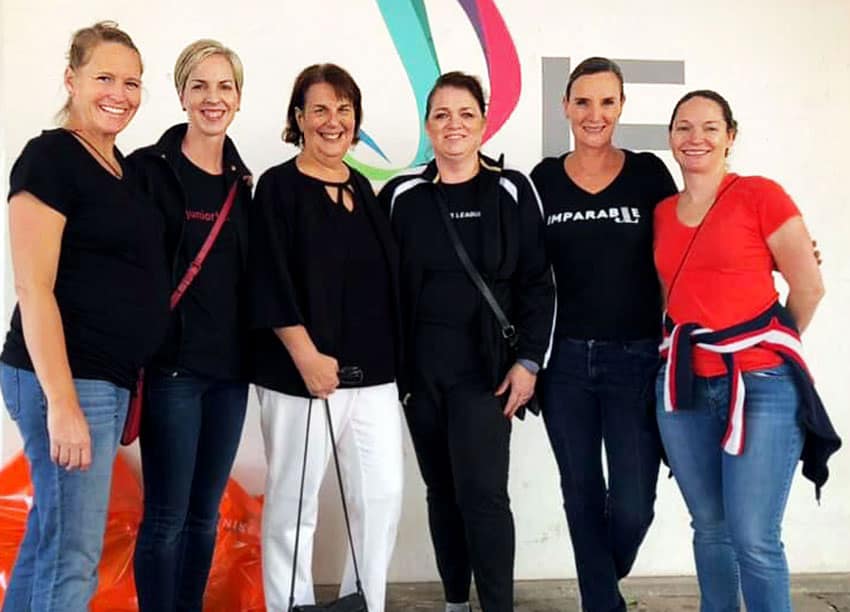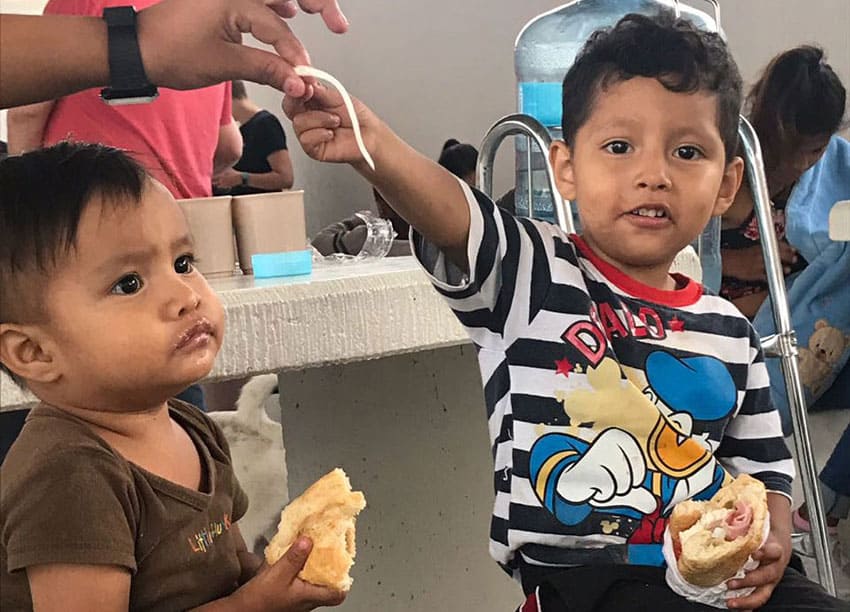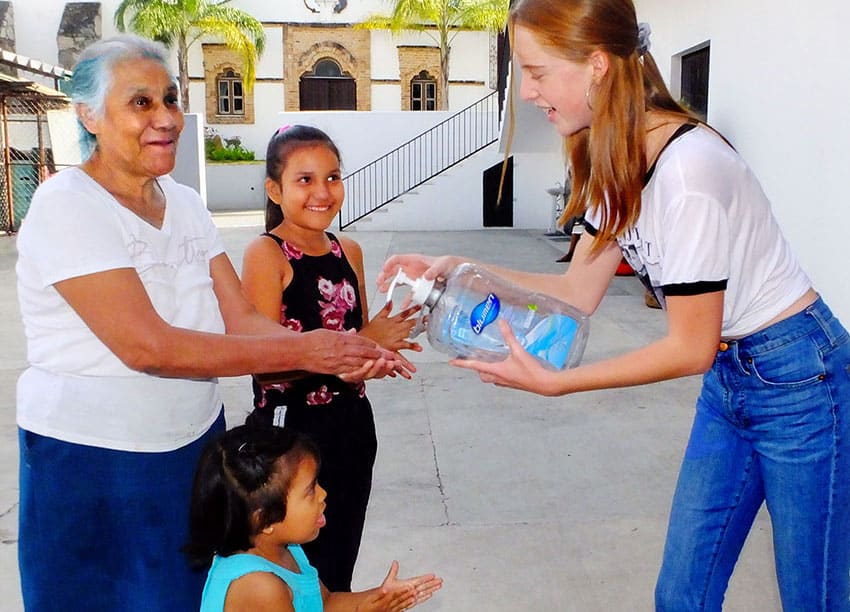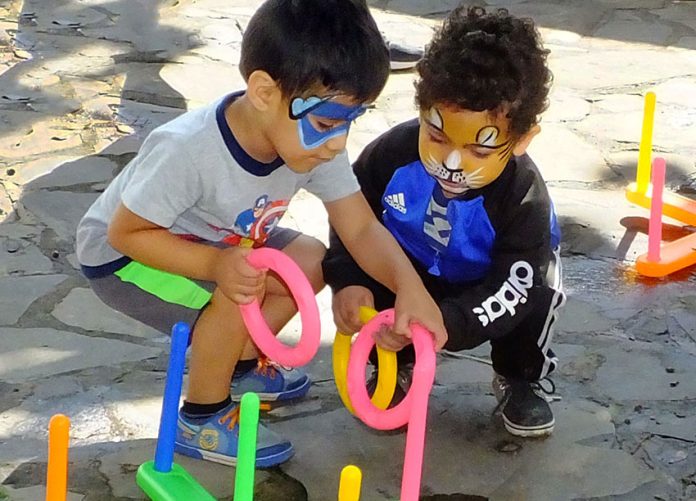Not long ago I was invited to the inauguration of a new playground at a DIF (family development) center in a low-income section of Guadalajara.
One of the organizers of the event was an expat named Lori Sumner, who explained to me that “DIF centers do amazing things for families. They provide food and medical care, hold classes and workshops, offer scholarships, run programs for children — well, they just plunge ahead and do whatever is needed in the neighborhood.
“This particular DIF serves 90 kids a day,” Sumner continued, “but the yard around it used to be just concrete with nothing for the kids to do. So we came up with the idea of constructing a playground here. Financing this proved a bit of a challenge, but in the end we were able to complete our project thanks to a little help from the Junior League.”
“And what is the Junior League?” I asked.
“Well, the president of the Guadalajara Junior League is standing right behind you, so I’ll let her answer your question,” replied Sumner, who was immediately off to resolve all of those problems which inevitably arise whenever you are trying to inaugurate anything.

This was how I met Terrill Martínez, a former high-school English teacher and author of a highly imaginative children’s books called ¡Chícharo!
“Our organization is part of the Association of Junior Leagues International,” Martínez told me, “which was started in New York City in 1901. Today it has 150,000 members spread around four different countries: U.S.A., U.K., Canada and Mexico. Each league is dedicated to helping women become leaders for positive change in their community.
“Here in Mexico our focus is on women and children who are living in poverty and we have six programs that work to address those needs. We have a chapter in Mexico City which has been around for 80 years, while our Guadalajara branch is only 35 years old.”
One of the organization’s oldest projects, Martínez told me, is called Mi Bebé y Yo (My baby and I), which gives packages of badly needed items, as well as breast-feeding information, to new mothers at several Guadalajara hospitals.
Another project goes by the name of Primera Impresión (First Impression): “We assist girls who have just graduated from college and are about to interview for jobs. We help them write their resumes and set up mock interviews to familiarize them with the process. We even provide clothing and a makeover for them, if they are in need of that.”
Other projects are Sábados Musicales (Musical Saturdays), a music program for children at the Sueños y Esperanzas orphanage in Guadalajara, and Hecho en un Día, (Done in a Day) by which the Junior League assists other organizations that want to carry out some sort of one-day-only effort.

“For example,” said Martínez, “we’ve helped with some projects of Techo, a Latin-American organization a bit like Habitat for Humanity, which has constructed houses for over 102,400 families in 19 countries.”
Terrill Martínez also mentioned that the Junior League was operating a soup kitchen in a little community at the edge of town, but by then it was time for the official inauguration of the new playground at the DIF, which consisted of well-built swings, slides and monkey bars.
That ceremony, I have to say, was unlike any inauguration this writer has ever seen during his many years of living in countries like Italy, Jamaica, Korea, Spain, France, Saudi Arabia and, of course, Mexico.
Even though representatives of the DIF, the Junior League and the U.S. Foreign Service were all present (even the U.S. Consul General was there), not one speech was given and not one politician or administrator got up on a stage to take all the credit!
Instead, a young volunteer from Nike picked up the microphone and directly addressed the children, many of whom were already swinging high in the air and otherwise enjoying their new playground.
“Kids, we have all kinds of great things for you to do today. We have rings to toss, basketballs to throw, bats to swing, hoops to squeeze through and games we can all play together — let’s have fun!”

And fun they had. What a lot of happy kids and smiling moms! And there in the background taking it all in, was the U.S. Consul General for Guadalajara, Robin Matthewman. “This is a wonderful project,” she told me, “all done by volunteers. I am filled with pride.”
A few weeks later, I had an opportunity to visit the Junior League’s soup kitchen project in the indigenous pueblito of San Juan Ocotán, which is located at the far western edge of Greater Guadalajara.
“Well, well, this little community has been here for a long time,” I told my wife when we ran into the coat of arms of Spanish king Carlos III — dated 1779 — on the wall of the local church.
Inside the patio of the church grounds we found a group of women busily preparing yummy-looking tortas. One of them was Pilar Ortega, co-director of the soup kitchen.
“Once a month we come here to serve 150 meals,” Ortega told me. “We are partnering here with HP. They organize the soup kitchen on the second Thursday of each month and we handle it on the fourth. After the meal I give talks to those women who are interested, typically on subjects like violence, drug addiction, emotions, fears, abuse and dealing with the seasonal viruses that often attack the kids.”
Soon a line of local people appeared to receive their meal and when they had finished eating, Ortega went upstairs to give today’s talk while another volunteer organized games in the patio for the children. Meanwhile, yet another volunteer — this one originally from Lebanon — commented that, in her opinion, the talks were the most important part of the soup kitchen event.
[soliloquy id="92112"]
“The women of this community have expressed a real need for this kind of information,” Rita Chehabeddine told me. “They say the talks are very, very helpful.”
I was truly impressed by the dedication of these volunteers. “How did this organization get started?” I asked Terrill Martínez.
“It all began,” she told me, “when a woman named Mary Harriman visited a settlement house in the Lower East Side of Manhattan at the turn of the 20th century. She couldn’t believe what was happening to migrants in these places and she organized a group of friends to try to help them out.
“They called themselves the Junior League and soon there were Junior Leagues appearing all around the country. Today it’s hard to find any city in the U.S.A. that doesn’t have one. Many are small, but some of them have thousands of members. Each of them addresses problems specific to their own community.
“In one town, kids might be getting into trouble after school, so the Junior League will start a program to keep them busy. Somewhere else they might help local people build a museum. Back in the day, the league had a lot to do with getting women the vote in the U.S.A. The Junior League has been working to help out women and children for a long time and here in Guadalajara we continue that upbeat tradition born in New York City a century ago.”
The writer has lived near Guadalajara, Jalisco, for more than 30 years and is the author of A Guide to West Mexico’s Guachimontones and Surrounding Area and co-author of Outdoors in Western Mexico. More of his writing can be found on his website.
